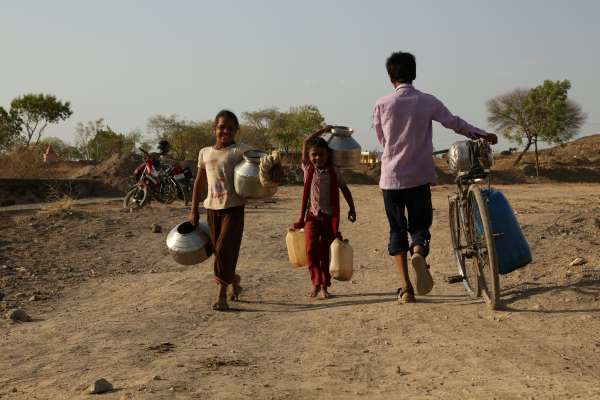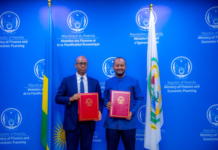The Horn of Africa is experiencing one of its most severe droughts in recent history, with more than 15 million people acutely food insecure in Ethiopia, Kenya and Somalia.
According to the UN Office for the Coordination of Humanitarian Affairs (OCHA), families are taking desperate measures to survive, with thousands leaving their homes in search of food, water and pasture.
“Communities in the Horn of Africa are experiencing one of the most severe droughts in their memory as they brace for the prospect of a fourth consecutive poor season, which could lead to an unprecedented climate emergency in the region,” OCHA said this week.
“Latest forecasts indicate that the March to May 2022 rainy season is likely to be average to below-average. This comes after the October-December 2020, March-May 2021 and October-December 2021 seasons were all marred by below-average rainfall, leaving large swathes of Somalia, southern and south-eastern Ethiopia, and northern and eastern Kenya facing exceptional drought.”
OCHA added; “If the March-May rains fail, this would be the first time in the last 40 years that the region has endured four consecutive below-normal seasons.”
Between 15 and 16 million people are reported to be waking each day to high levels of acute food insecurity and rising malnutrition across Ethiopia, Kenya and Somalia, and some areas in Somalia are now at risk of famine.
“Nearly 6 million people in Somalia are acutely food insecure—including 81 000 people —which is higher than during the 2011 famine and the 2016/2017 severe drought.
“Between 5.5 million and 6.5 million people in Ethiopia and some 3.5 million people in Kenya are severely food insecure due to the drought.”
Millions of livestock—which pastoralist families rely upon for sustenance and livelihoods—are emaciated or dead, including more than 1.5 million animals that have died in Kenya, and over 1.5 million livestock that have died in Somali, and Ethiopia.
“Consequently, children have less access to milk, negatively affecting their nutrition. Across the three countries, about 5.7 million children are currently acutely malnourished, including more than 1.7 million who are severely acutely malnourished, and these figures are expected to rise to 6.9 million and 2 million respectively if rains fail in the coming weeks, according to UNICEF.”
As a result, food prices are rising in many drought-affected areas, due to a combination of macro-economic challenges, below-average harvests and rising prices on international markets, including as a result of the war in Ukraine. The cost of a food basket has already risen by 66% in Ethiopia and by 36% in Somalia, leaving families unable to afford even basic items and forcing them to sell their hard-earned properties and assets in exchange for food and other life-saving items.
“Across the Horn of Africa, millions of people are facing dire water shortages. Many water points have dried up or diminished in quality, heightening the risk of water-borne diseases and increasing the risk of skin and eye infections as families are forced to ration their water use and prioritize drinking and cooking over hygiene.
“In some of the worst affected areas in Somalia, water prices have spiked by up to 72 per cent since last November. Families are taking desperate measures to survive, with thousands leaving their homes in search of food, water and pasture, increasing the risk of inter-communal conflict, as well as heightening pressure on already limited basic services.”
OCHA said it also welcomed the emergency declarations issued by the governments of Kenya (September 2021) and Somalia (November 2021), and called on governments across the region to prioritise the drought emergency.
“It is vital that funds are made available for timely and comprehensive support to drought-affected communities at all levels. We also call on governments across the region to ensure that humanitarian workers can access people in need in safety and security,” it added.








